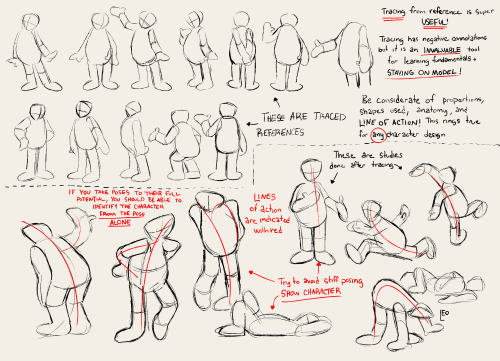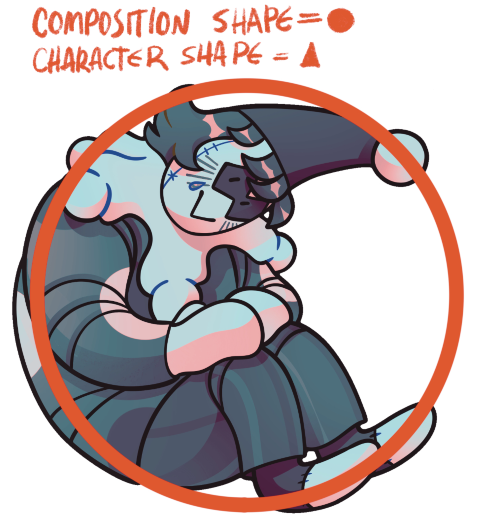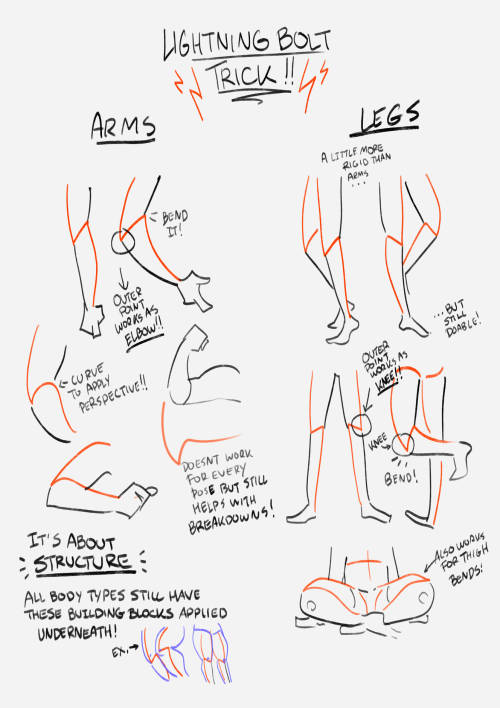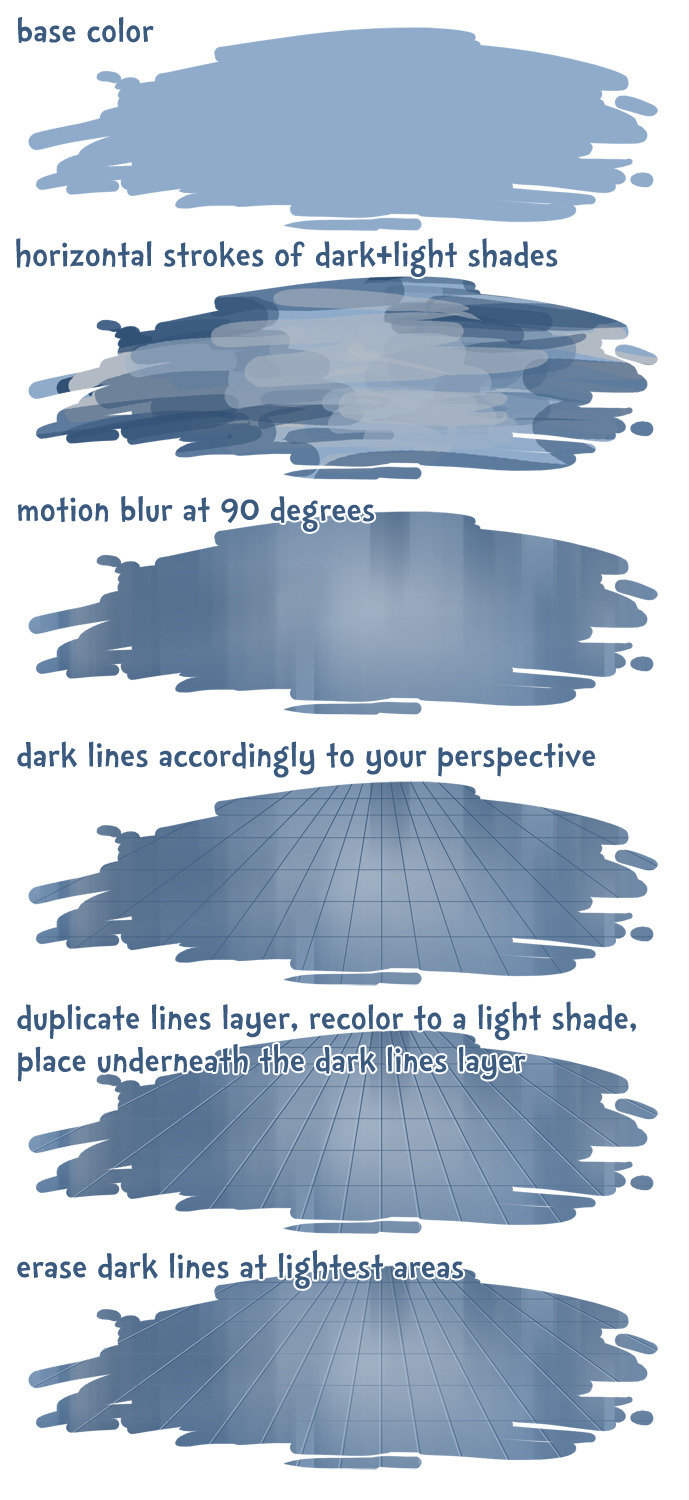How To Draw Shorelines




How to Draw Shorelines
More Posts from Ardouradvice and Others
Dear downydig,
Any secret knowledge on how to do fluid and dynamic poses? (Btw, I love ur art!! So comfy and cozy!!!)
Sincerely, Paper-Starz

Hello hello! I have some advice! I did a thing on lines of action and the benefits of tracing in learning models a LONG time ago… the advice still holds up! Use shapes like ‘s’ curves, ‘c’ curves, and even sharper ‘U’s to give a fun fluid motion! Limbs and spine are the main help here, but the head sometimes comes into play ✌️
I have a little more to add, however! One of these pictures is my oc and the other is a king fu panda character but it’s still useful! When creating a pose, you can also use silhouette! Bonus points if the shape of the silhouette is different than the shapes that compose the character (in a way that matches the personality of course!)


this showed up in my FB memories, the lightning bolt trick! I don't sketch out the lightning bolt much nowadays but it's still super helpful when I need to lay out tricky arms and leg poses. And I still apply the logic of it, especially with how I draw arms :' ) Biggest thing it helps with is shape breakdown and visualization, we gotta use whatever works to break down shapes into simpler concepts for our brains 👏💓

Things That May Be Causing Your Writer's Block- and How to Beat Them
I don't like the term 'Writer's Block' - not because it isn't real, but because the term is so vague that it's useless. Hundreds of issues all get lumped together under this one umbrella, making writer's block seem like this all-powerful boogeyman that's impossible to beat. Worse yet, it leaves people giving and receiving advice that is completely ineffective because people often don't realize they're talking about entirely different issues.
In my experience, the key to beating writer's block is figuring out what the block even is, so I put together a list of Actual Reasons why you may be struggling to write:
(note that any case of writer's block is usually a mix of two or more)
Perfectionism (most common)
What it looks like:
You write one sentence and spend the next hour googling "synonyms for ___"
Write. Erase. Write. Rewrite. Erase.
Should I even start writing this scene when I haven't figured out this one specific detail yet?
I hate everything I write
Cringing while writing
My first draft must be perfect, or else I'm a terrible writer
Things that can help:
Give yourself permission to suck
Keep in mind that nothing you write is going to be perfect, especially your first draft
Think of writing your first/early drafts not as writing, but sketching out a loose foundation to build upon later
People write multiple drafts for a reason: write now, edit later
Stop googling synonyms and save that for editing
Write with a pen to reduce temptation to erase
Embrace leaving blank spaces in your writing when you can't think of the right word, name, or detail
It's okay if your writing sucks. We all suck at some point. Embrace the growth mindset, and focus on getting words on a page
Lack of inspiration (easiest to fix)
What it looks like:
Head empty, no ideas
What do I even write about???
I don't have a plot, I just have an image
Want to write but no story to write
Things that can help:
Google writing prompts
If writing prompts aren't your thing, instead try thinking about what kind of tropes/genres/story elements you would like to try out
Instead of thinking about the story you would like to write, think about the story you would like to read, and write that
It's okay if you don't have a fully fleshed out story idea. Even if it's just an image or a line of dialogue, it's okay to write that. A story may or may not come out of it, but at least you got the creative juices flowing
Stop writing. Step away from your desk and let yourself naturally get inspired. Go for a walk, read a book, travel, play video games, research history, etc. Don't force ideas, but do open up your mind to them
If you're like me, world-building may come more naturally than plotting. Design the world first and let the story come later
Boredom/Understimulation (lost the flow)
What it looks like:
I know I should be writing but uugggghhhh I just can'tttttt
Writing words feels like pulling teeth
I started writing, but then I got bored/distracted
I enjoy the idea of writing, but the actual process makes me want to throw my laptop out the window
Things that can help:
Introduce stimulation: snacks, beverages, gum, music such as lo-fi, blankets, decorate your writing space, get a clickity-clackity keyboard, etc.
Add variety: write in a new location, try a new idea/different story for a day or so, switch up how you write (pen and paper vs. computer) or try voice recording or text-to-speech
Gamify writing: create an arbitrary challenge, such as trying to see how many words you can write in a set time and try to beat your high score
Find a writing buddy or join a writer's group
Give yourself a reward for every writing milestone, even if it's just writing a paragraph
Ask yourself whether this project you're working on is something you really want to be doing, and be honest with your answer
Intimidation/Procrastination (often related to perfectionism, but not always)
What it looks like:
I was feeling really motivated to write, but then I opened my laptop
I don't even know where to start
I love writing, but I can never seem to get started
I'll write tomorrow. I mean next week. Next month? Next month, I swear (doesn't write next month)
Can't find the time or energy
Unreasonable expectations (I should be able to write 10,000 words a day, right????)
Feeling discouraged and wondering why I'm even trying
Things that can help:
Follow the 2 min rule (or the 1 paragraph rule, which works better for me): whenever you sit down to write, tell yourself that you are only going to write for 2 minutes. If you feel like continuing once the 2 mins are up, go for it! Otherwise, stop. Force yourself to start but DO NOT force yourself to continue unless you feel like it. The more often you do this, the easier it will be to get started
Make getting started as easy as possible (i.e. minimize barriers: if getting up to get a notebook is stopping you from getting started, then write in the notes app of your phone)
Commit to a routine that will work for you. Baby steps are important here. Go with something that feels reasonable: every day, every other day, once a week, twice a week, and use cues to help you remember to start. If you chose a set time to write, just make sure that it's a time that feels natural to you- i.e. don't force yourself to writing at 9am every morning if you're not a morning person
Find a friend or a writing buddy you can trust and talk it out or share a piece of work you're proud of. Sometimes we just get a bit bogged down by criticism- either internal or external- and need a few words of encouragement
The Problem's Not You, It's Your Story (or Outline (or Process))
What it looks like:
I have no problems writing other scenes, it's just this scene
I started writing, but now I have no idea where I'm going
I don't think I'm doing this right
What's an outline?
Drowning in documents
This. Doesn't. Make. Sense. How do I get from this plot point to this one?!?!?! (this ColeyDoesThings quote lives in my head rent free cause BOY have I been there)
Things That Can Help:
Go back to the drawing board. Really try to get at the root of why a scene or story isn't working
A part of growing as a writer is learning when to kill your darlings. Sometimes you're trying to force an idea or scene that just doesn't work and you need to let it go
If you don't have an outline, write one
If you have an outline and it isn't working, rewrite it, or look up different ways to structure it
You may be trying to write as a pantser when you're really a plotter or vice versa. Experiment with different writing processes and see what feels most natural
Study story structures, starting with the three act structure. Even if you don't use them, you should know them
Check out Ellen Brock on YouTube. She's a professional novel editor who has a lot of advice on writing strategies for different types of writers
Also check out Savage Books on YouTube (another professional story editor) for advice on story structure and dialogue. Seriously, I cannot recommend this guy enough
Executive Dysfunction, Usually From ADHD/Autism
What it looks like:
Everything in boredom/understimulation
Everything in intimidation/procrastination
You have been diagnosed with and/or have symptoms of ADHD/Autism
Things that can help:
If you haven't already, seek a diagnosis or professional treatment
Hire an ADHD coach or other specialist that can help you work with your brain (I use Shimmer; feel free to DM me for a referral)
Seek out neurodiverse and neurodiverse writing communities for advice and support
Try body doubling! There's lot's of free online body doubling websites out there for you to try. If social anxiety is a barrier, start out with writing streams such as katecavanaughwrites on Twitch
Be aware of any sensory barriers that may be getting in the way of you writing (such as an uncomfortable desk chair, harsh lighting, bad sounds)
And Lastly, Burnout, Depression, or Other Mental Illness
What it looks like:
You have symptoms of burnout or depression
Struggling with all things, not just writing
It's more than a lack of motivation- the spark is just dead
Things that can help:
Forget writing for now. Focus on healing first.
Seek professional help
If you feel like it, use writing as a way to explore your feelings. It can take the form of journaling, poetry, an abstract reflection of your thoughts, narrative essays, or exploring what you're feeling through your fictional characters. The last two helped me rediscover my love of writing after I thought years of depression had killed it for good. Just don't force yourself to do so, and stop if it takes you to a darker place instead of feeling cathartic
Quick editing tip: Passing time
Hey all, here’s a quick tip about showing the passage of short amounts of time in a scene. I see a lot of beats like this:
She hesitated
He paused
A few seconds later
There was a long silence
He waited for her to answer
She didn’t respond
Instead of telling us there’s a brief moment of silence or pause in your scene, try showing us by creating the feeling that time has passed through action, description, or inner monologue. Here are a few examples.
Before:
“Are you coming or not?”
He waited for her to answer, but she didn’t respond.
“Clare? Did you hear me?”
“Huh?”
After:
“Are you coming or not?”
Clare scrolled through her phone, her face illuminating with a eerie blue glow.
“Clare? Did you hear me?”
“Huh?”
Before:
Jared lingered at the suspect’s front gate. If this guy didn’t answer Jared’s questions, he was screwed.
“Hey you!” a voice shouted. “Get off my property!”
Jared hesitated. Finally, he turned to face the man. “I’m afraid I can’t do that.”
After:
Jared lingered at the suspect’s front gate. If this guy didn’t answer Jared’s questions, he was screwed.
“Hey you!” a voice shouted. “Get off my property!”
Jared patted his holster. He had a gun, but he certainly didn’t want to use it. Taking a deep breath, he turned to face the man. “I’m afraid I can’t do that.”
Not only does creating a pause instead of describing a pause allow your reader to feel the moment more vividly, it gives you a chance to explain what exactly that pause is about. People hesitate, pause, don’t respond, etc. for all kinds of reasons. Give us as much insight as you can into your weird quiet moment.
Of course, you don’t need to do this every single time. Sometimes it’s fine to say “he paused” or “the room was quiet for a moment”—it could be the best choice for that scene. But look back through your draft and see if you’ve used those “telling” descriptions more often than you needed to. If so, try to create the feeling of a pause—perhaps one that gives the reader a bit more information—using these techniques.
Hope this helps!
Show, don’t tell
"Show, don’t tell" means letting readers experience a story through actions, senses, and dialogue instead of outright explaining things. Here are some practical tips to achieve that:
1. Use Sensory Details
Tell: "The room was cold."
Show: "Her breath puffed in faint clouds, and she shivered as frost clung to the edges of the window."
Tell: "He was scared."
Show: "His hands trembled, and his heart thudded so loudly he was sure they could hear it too."
2. Focus on Actions
Tell: "She was angry."
Show: "She slammed the mug onto the counter, coffee sloshing over the rim as her jaw clenched."
Tell: "He was exhausted."
Show: "He stumbled through the door, collapsing onto the couch without even bothering to remove his shoes."
3. Use Dialogue
What characters say and how they say it can reveal their emotions, intentions, or traits.
Tell: "She was worried about the storm."
Show: "Do you think it'll reach us?" she asked, her voice tight, her fingers twisting the hem of her shirt.
4. Show Internal Conflict Through Thoughts or Reactions
Tell: "He was jealous of his friend."
Show: "As his friend held up the trophy, he forced a smile, swallowing the bitter lump rising in his throat."
5. Describe the Environment to Reflect Mood
Use the setting to mirror or hint at emotions or themes.
Tell: "The town was eerie."
Show: "Empty streets stretched into the mist, and the only sound was the faint creak of a weathered sign swinging in the wind."
6. Let Readers Infer Through Context
Give enough clues for the reader to piece things together without spelling it out.
Tell: "The man was a thief."
Show: "He moved through the crowd, fingers brushing pockets, his hand darting away with a glint of gold."
7. Use Subtext in Interactions
What’s left unsaid can reveal as much as what’s spoken.
Tell: "They were uncomfortable around each other."
Show: "He avoided her eyes, pretending to study the painting on the wall. She smoothed her dress for the third time, her fingers fumbling with the hem."
8. Compare to Relatable Experiences
Use metaphors, similes, or comparisons to make an emotion or situation vivid.
Tell: "The mountain was huge."
Show: "The mountain loomed above them, its peak disappearing into the clouds, as if it pierced the heavens."
Practice Example:
Tell: "The village had been destroyed by the fire."
Show: "Charred beams jutted from the rubble like broken ribs, the acrid smell of ash lingering in the air. A child's shoe lay half-buried in the soot, its leather curled from the heat."
Oh my gosh. I just found this website that walks you though creating a believable society. It breaks each facet down into individual questions and makes it so simple! It seems really helpful for worldbuilding!
So I thought this was commonly known internet navigation (but apparently it might just be those of us who have been using the internet since the 90’s who still know it). Or so it seems based on… a grumpy comment I got.
When you see an arrow like this:

It means you click it to expand out a hidden section.

It’s an accordion section/menu! It’s useful in web design to hide information that may be overwhelming under specific headers so people can only see what they need.
Here I’m using it for people who need the content warnings to be able to check, but for those who don’t need them and don’t want to be spoiled to just move right past without accidentally reading anything.
It’s still the user’s responsibility to click the arrow and read things as they need! But it is all warned. (And, yes, the all encompassing issues are already a tag on the fic, I’m just providing additonal warnings per chapter.)
-
 pixel-nyx liked this · 2 months ago
pixel-nyx liked this · 2 months ago -
 findings-of-a-dreamscape-witch reblogged this · 2 months ago
findings-of-a-dreamscape-witch reblogged this · 2 months ago -
 victoria-blah reblogged this · 2 months ago
victoria-blah reblogged this · 2 months ago -
 victoria-blah liked this · 2 months ago
victoria-blah liked this · 2 months ago -
 exchangelambda liked this · 2 months ago
exchangelambda liked this · 2 months ago -
 itsabatfad liked this · 3 months ago
itsabatfad liked this · 3 months ago -
 sandijeans liked this · 3 months ago
sandijeans liked this · 3 months ago -
 purplemouseprincess liked this · 4 months ago
purplemouseprincess liked this · 4 months ago -
 glade-alerted-the-horde liked this · 4 months ago
glade-alerted-the-horde liked this · 4 months ago -
 panur reblogged this · 4 months ago
panur reblogged this · 4 months ago -
 lireb-librarian liked this · 5 months ago
lireb-librarian liked this · 5 months ago -
 sweetenedteeth liked this · 5 months ago
sweetenedteeth liked this · 5 months ago -
 chaos-reprisal liked this · 5 months ago
chaos-reprisal liked this · 5 months ago -
 ardouradvice reblogged this · 5 months ago
ardouradvice reblogged this · 5 months ago -
 bluestarlett reblogged this · 5 months ago
bluestarlett reblogged this · 5 months ago -
 bluestarlett liked this · 5 months ago
bluestarlett liked this · 5 months ago -
 tobyburnerburner reblogged this · 5 months ago
tobyburnerburner reblogged this · 5 months ago -
 fresh-squeezed-spider-cider liked this · 5 months ago
fresh-squeezed-spider-cider liked this · 5 months ago -
 mothsintherain liked this · 6 months ago
mothsintherain liked this · 6 months ago -
 heartshapedhooves reblogged this · 6 months ago
heartshapedhooves reblogged this · 6 months ago -
 teamfortresstwo reblogged this · 6 months ago
teamfortresstwo reblogged this · 6 months ago -
 teamfortresstwo liked this · 6 months ago
teamfortresstwo liked this · 6 months ago -
 apeaceoflove reblogged this · 6 months ago
apeaceoflove reblogged this · 6 months ago -
 curryramenenjoyer liked this · 7 months ago
curryramenenjoyer liked this · 7 months ago -
 derpyinch liked this · 8 months ago
derpyinch liked this · 8 months ago -
 mysteryfleshpitenthusiast liked this · 9 months ago
mysteryfleshpitenthusiast liked this · 9 months ago -
 lostmar liked this · 10 months ago
lostmar liked this · 10 months ago -
 unrepentantweirdo liked this · 10 months ago
unrepentantweirdo liked this · 10 months ago -
 sk1llz-heeler liked this · 10 months ago
sk1llz-heeler liked this · 10 months ago -
 stqrbound reblogged this · 10 months ago
stqrbound reblogged this · 10 months ago -
 stqrbound liked this · 10 months ago
stqrbound liked this · 10 months ago -
 namelessbenji reblogged this · 10 months ago
namelessbenji reblogged this · 10 months ago -
 namelessbenji liked this · 10 months ago
namelessbenji liked this · 10 months ago -
 eoceneepoch liked this · 10 months ago
eoceneepoch liked this · 10 months ago -
 its-raining-rats-and-frogs liked this · 10 months ago
its-raining-rats-and-frogs liked this · 10 months ago -
 pepsi-is-me-2 reblogged this · 10 months ago
pepsi-is-me-2 reblogged this · 10 months ago -
 pepsi-is-me liked this · 10 months ago
pepsi-is-me liked this · 10 months ago -
 beebo-shmeebo liked this · 10 months ago
beebo-shmeebo liked this · 10 months ago -
 radioloria liked this · 10 months ago
radioloria liked this · 10 months ago -
 milesmain liked this · 10 months ago
milesmain liked this · 10 months ago -
 uncledrifter liked this · 10 months ago
uncledrifter liked this · 10 months ago -
 soulsucka420 liked this · 10 months ago
soulsucka420 liked this · 10 months ago -
 ethicalspacepiracy reblogged this · 10 months ago
ethicalspacepiracy reblogged this · 10 months ago -
 ethicalspacepiracy liked this · 10 months ago
ethicalspacepiracy liked this · 10 months ago

sideblog for @letardoursprout so i have somewhere to collect all the tutorials/advice that i likeicon by lovelyshiz. header by hexh-pixel
66 posts




